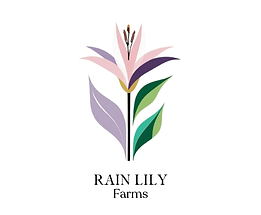Why We Plant for Pollinators: Healing Ecosystems and People
- carrie8414
- Aug 16, 2025
- 2 min read
At Rain Lily Farms, every flower has a purpose. Every buzzing bee, fluttering butterfly, and hummingbird is part of a larger story—one of restoration, resilience, and renewal. When we plant for pollinators, we’re not just supporting biodiversity. We’re creating spaces where both ecosystems and people can heal.

What Are Pollinators—and Why Do They Matter?
Pollinators are animals that help plants reproduce by transferring pollen from one flower to another. They include:
Bees
Butterflies
Hummingbirds
Moths, beetles, and even bats
These tiny workers are responsible for pollinating over 75% of flowering plants and ⅓ of the food we eat. Without them, our gardens—and our plates—would look very different.
Healing the Land, Healing Ourselves
At Rain Lily Farms, planting for pollinators is part of our trauma-informed approach to land stewardship. Survivors in our vocational programs learn to cultivate native wildflowers, herbs, and vegetables that attract and sustain pollinators. The process is meditative, empowering, and deeply symbolic.
Why it matters:
Restores degraded soil and habitats
Teaches patience and care through seasonal cycles
Connects participants to nature and purpose
Supports mental health through sensory-rich environments
One participant shared, “Watching the butterflies return made me feel like I was part of something bigger. Like I could bloom too.”
What We Plant—and Why
We choose plants that are native to Louisiana and thrive in our climate, ensuring they provide real nourishment to local pollinators.
Pollinator favorites at Rain Lily Farms:
Plant | Pollinator Benefit |
Milkweed | Monarch butterfly host plant |
Purple coneflower | Nectar for bees and butterflies |
Bee balm | Attracts hummingbirds and native bees |
Lavender | Sensory-friendly and pollinator-rich |
Sunflowers | Food source and visual joy |
We also avoid pesticides and synthetic fertilizers, creating a safe haven for pollinators and people alike.
Trauma-Informed Tip: Planting as a Healing Ritual
Planting for pollinators is more than a task—it’s a ritual of hope. Participants often choose a flower to represent their journey, planting it with intention and watching it grow over time. These small acts of care become powerful reminders of resilience.
.png)



Comments